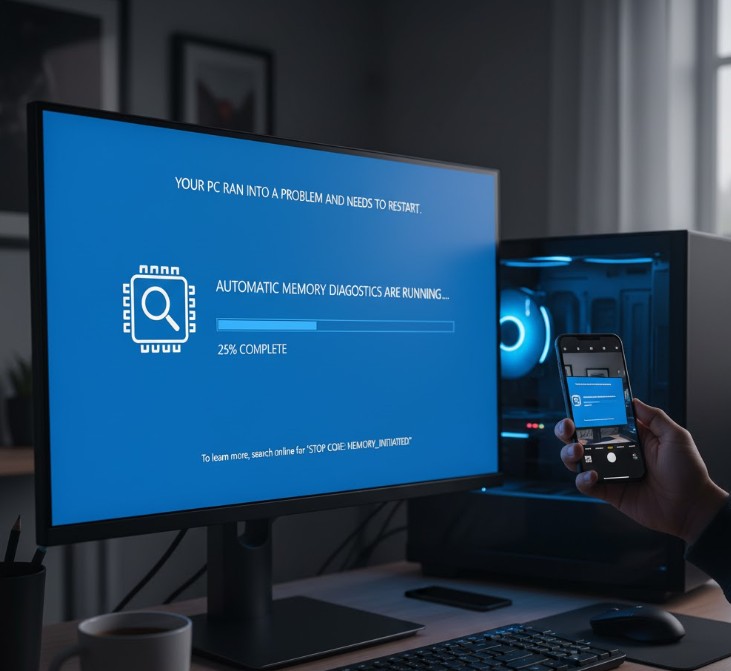Microsoft’s new feature rolled into Windows 11, asking the user to carry out a memory (RAM) diagnosis after a blue screen error (BSod). It was reported that this is meant to be made available under Insider build Dev Channel (Build 26220.6982, KB5067109). After a crash, a window pops up through which Windows inquires whether the user wants to carry out a scan at the next startup.
What Happens When Memory Scan Triggered by a Blue Screen
Upon experiencing a bug check and blue screen, Windows 11 will display a pop-up that would say, “Would you like to check your memory for errors?” on the screen. The user has the option to either run the scan or dismiss it. Accepting the offer will bring the system back into Windows Memory Diagnostics, which will be looking for memory corruption or instability, which may be the cause of crashing occurrences.
Why Memory Scanning Will Make Microsoft Believe in Better Reliability
The entire goal of Microsoft would be to render systems more stable and freer from elusive crashes that relate to memory. Their idea is to further elaborate the automatic detection of early downturns related to memory, wanted for cases less likely to be experienced by users who are confronted with BSODs that occur sporadically and caused due to bad RAM or those not properly configured (when overclocked memory modules are used). Tackle a broad area of system failure that was difficult to debug.
How This Feature Will Affect Ordinary Windows 11 Users
For the most part, these features represent passive guards: nothing will need to be specially enabled. If a BSOD occurs on your PC, you will see a message offering to perform a memory scan. Ignore it, and the system continues as normal. For advanced users with custom RAM setups, this may prompt an earlier intervention. One caveat: the pop-up may not occur if the machine in question is ARM-based or employs BitLocker without Secure Boot.
Timeline And Roll‑Out Path from Insider to Public Release
The feature is currently on hold at the Windows Insider Dev Channel to allow testing. Microsoft has not yet commented on a public release date but features in the Dev Channel normally trickle into mainstream Windows updates in the course of several months. For stable users, the scan prompt will eventually become available to all editions of Windows 11 unless an embargo is imposed because of hardware/firmware concerns. Ground News
With the launch of memory-scan prompts after crashes, Windows 11 pushes proactive improvement in system health and easing fault diagnosis. It helps anyone, from casual users to hard-core PC builders, to take the mystery out of blue screens-to events that are possible to diagnose-and helps to keep the system running smoother.
Also Read: Gemini Lands on Google Maps to Chat—Make Sure You Don’t Miss Your Turn
News Source: PCmag.com

